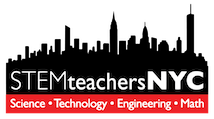October 2024
In the October meeting of Equity Lab, the Topic of Practice focused on setting intentions for our work. Participants were invited to share how they are centering racial and gender equity in STEM education this year. They discussed the strategies they are using in their daily practices and the challenges they are facing in making these changes. A key point of the conversation was identifying the types of support and resources needed to address these challenges, as well as the actions they plan to take when the work feels uncomfortable or difficult. There was a strong emphasis on creating a supportive space where educators could expand their possibilities, access resources, and potentially find accountability partners to sustain their efforts in promoting equity in STEM.
Equity Lab also continued its book club reading of Punished for Dreaming by Betnijah Love, discussing Chapter 7, “Standardizing Carcerality.” The discussion touched on the demographics of educators—75% of whom are women and 80% white—which often leads to biases, particularly in how Black boys are perceived. Participants reflected on how they can confront these biases to ensure that every student is recognized for their full potential. The conversation also focused on Gloria Ladson-Billings’ important distinction between the “achievement gap” and the “education debt,” reframing the conversation around systemic underinvestment in marginalized communities rather than individual deficits. This shift challenges educators to move beyond surface-level metrics and address the deeper, structural issues that perpetuate inequality. The group discussed how standardized testing serves to maintain white supremacy by reinforcing privilege and limiting opportunities for marginalized students. They also reflected on the influence of corporate interests in education, particularly the $2 billion spent by test companies lobbying for the continued use of high-stakes assessments. The chapter concluded with concerns about the use of algorithms that predict college readiness based on third-grade test scores, raising alarms about how early data is being used to limit students’ futures.
As always, the Equity Lab made space for collaborative resource sharing, including an introduction to resources on leading restorative justice circles to help students and colleagues process the violence in Gaza, Israel, and beyond. Other highlights from Equity in STEM in the News included discussions on the pervasive concept of being “bad at math” and whether it can be banished from schools, warnings about how AI is accelerating the climate crisis, and a conversation with agroecologist Maywa Montenegro about AI detection software and its role in shaping systems of power.
Equity Lab meets monthly and always welcomes new members. If you would like to learn more about Equity Lab and/or STEMteachersNYC, please check out our website. You can use this form to sign up for any of STEMteachersNYC’s free monthly working groups, including Equity Lab!
Note: summaries are written with aid of AI text software

